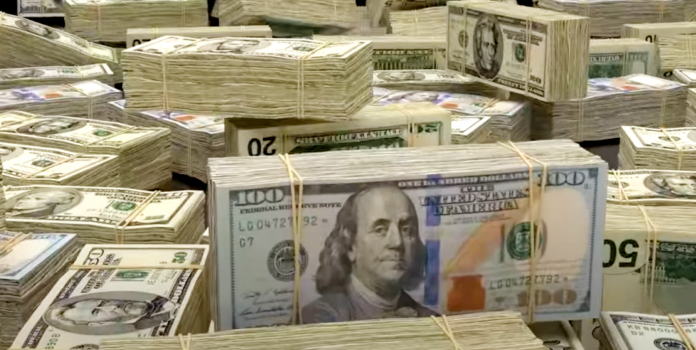(Jerome Huyler, Headline USA contributor) American capitalism has had its ups and downs, as in the country’s long succession of boom-and-bust business cycles.
Periods of robust economic growth were interrupted by devastating financial panics that struck suddenly in 1792, 1819, 1837, 1857, 1873, 1893 and 2007. And then came the Great Depression of the 1930s, “stagflation” in the late-1970s, the savings-and-loan crisis of 1987, and a sub-prime housing meltdown that sparked a “Great Recession” by 2008.
Could the country be barreling headlong toward another severe crisis? Ominous signs suggest as much.
- Developers have built super-size, urban and suburban office towers. Now, with so many working from home and so much unrented office space, could pending mortgage defaults precipitate a nation-wide banking crisis? The Federal Reserve will likely lend lending institutions billions more to avoid yet another nationwide bank run.
- History has a way of repeating itself. First, government undertakes a project of great “national importance,” then generous subsidies begin flowing to well-connected businesses. Completed in 1869, by 1873, the publicly-subsidized Union and Central Pacific railroads went bust. The bold adventure to bind the nation together precipitated a five-year depression that spread grievous hardship across the land. Shortly after opening its doors, thanks to a $500 million Congressional grant, the Obama-era Solyndra Corp filed for bankruptcy and closed its doors. How many publicly-subsidized ESG companies will survive, once they have to sink or swim on their own?
- The country’s already colossal, $31+ trillion accumulated public debt could, one day, make wary foreign governments and private investors reluctant to purchase additional Treasury bonds. Again, the Treasury will have to raise the interest rates to find buyers for its bonds and keep the government afloat. As interest rates rise, economic activity naturally falls.
- How long will it be before a crime-ravaged, deep-blue city or county is caught between a fleeing middle-class tax base and its “need” to feed, clothe, educate, house and heal an ever-expanding out-of-work/immigrant population? What will become of all other municipal bond offerings once that city or county defaults on its debt obligations.
What if we could act today to avoid the hardship and suffering tomorrow may bring? What reforms should we seriously ponder?
Loud voices call for steep tax cuts. They correctly point out that the JFK, Reagan and Trump tax cuts stimulated economic activity and produced more, not less, tax revenue.
Nevertheless—BAT or VAT, FAIR or FLAT—tax reform won’t fix a thing. There’s no safe way to pay for a runaway welfare state and the level of public spending it demands. Every penny a government spends has to be financed.
As public programs multiply and expand, more and more revenue is needed. But rather than imposing a crushing tax burden on their constituents, politicians prefer to pass that burden onto future generations. So the country goes ever deeper into debt.
The money borrowed is not available for new commercial or industrial projects. The huge sums government “invests” in the market also distort the pace and direction of capital investment. The annual interest payments governments must make (now in excess of $400 billion) take more money out of productive circulation.
Then shouldn’t we press for immediate, “across-the-board” budget cuts? No, we shouldn’t. Not every service governments perform is essential. Some are, many aren’t. It will do no good to throw the baby out with the bathwater.
The real question that demands our attention is where can public spending be substantially cut? What programs can be downsized or eliminated, and what agencies, bureaus and Cabinet departments can be closed?
The hot headlines of the day aside, these are the vital questions Americans need to ponder. But the deepest question is this: What must government do for us and what must we be allowed and expected to do for ourselves—and our neighbors in need?
Indeed, how limited was limited government originally meant to be? And there is no time to dawdle, for as Gerald Ford advised back in 1976: A government that is big enough to give you anything you want, is big enough to take everything you have.
Jerome Huyler is a former assistant professor (Seton Hall University) with a PhD. in political science, and the author of Locke in America: The Moral Philosophy of the Founding Era. He lives in Brooklyn, N.Y.

